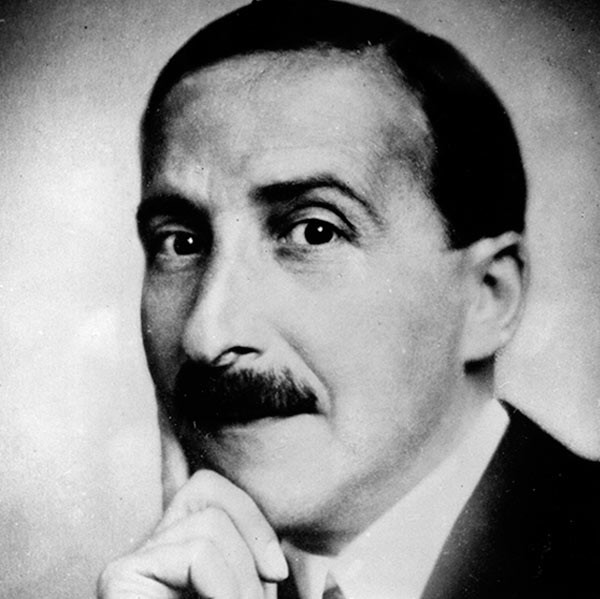Stefan Zweig (German: Stefan Zweig) is an Austrian writer, critic, translator, and author of numerous fictionalized biographies. He was born in 1881 in Vienna into a wealthy Jewish family. The Zweig family was not religious, and Stefan later described himself as an “accidental Jew”: “My mother and father were Jews only by accident of birth.”
Zweig studied German and Romance studies at the University of Vienna, where he received his doctorate in 1904. As the second son in the family, Stefan was free to engage in business, so after graduating he set off to travel the world. He visited European countries, distant countries in Asia and North America. On these trips he met other writers and artists with whom he later communicated and corresponded. Zweig was friends with such famous personalities as Emile Verhaeren, Romain Rolland, Auguste Rodin, Thomas Mann, Sigmund Freud, James Joyce, Hermann Hesse, Rainer-Maria Rilke, Herbert Wells, Paul Valéry.
Impressions from his travels and communication with talented people inspired Zweig to write poetry, and his parents' solid financial situation allowed him to publish books without difficulty. In 1901, a collection of poems "Silver Strings" was published. In 1904, Zweig's first short story was published. It was in this literary genre that the young author achieved the greatest success. Gradually, he developed his impressive writing style, which combined careful psychological interpretation with the captivating power of narration and brilliant style. In addition to writing his own stories, Zweig also translated the works of Paul Verlaine, Charles Baudelaire and especially Emile Verhaeren and worked as a journalist.
During World War I, Zweig served in the archives of the War Ministry, but later took a pacifist position and in 1917 was discharged from military service. The writer moved to Zurich in neutral Switzerland, where he worked as a reporter. After the war, Zweig returned to Austria and settled in Salzburg. The 1920s and 1930s were fruitful and very successful for the author, who achieved great success and popularity throughout Europe. He was at the peak of his literary career, one of the most popular writers in the world.
As a dedicated intellectual, Zweig strongly opposed nationalism and revanchism and promoted the idea of a spiritually united Europe. He believed that together with other anti-fascist writers he would be able to prevent a new world confrontation. But in those days when Zweig was working on a new book, the Nazis raided his house. Since 1933, the writer's books began to be burned in Germany, but loyal readers still enthusiastically followed the work of their beloved author. Only when his works were banned did the readership in Germany begin to decline sharply.
In 1934, Zweig left Salzburg, choosing London as his temporary residence. At the beginning of World War II, he even took British citizenship. But he soon left Britain, fearing that the British might not be able to distinguish between Austrians and Germans. And most importantly, he did not feel protected there. Therefore, Zweig and his wife again went on forced travels. After staying in the USA, Argentina and Paraguay, in 1940, the Zweigs settled in the small Brazilian city of Petropolis. A year later, Stefan Zweig's last and most famous work, The Game of Kings or The Chess Novel, was published. But neither the new place of residence nor his work saved the writer from deep depression. He was in despair about the future of Europe and its culture. On February 22, 1942, Zweig died together with his wife, having taken a large dose of sleeping pills.
A year after the writer's death, his autobiography "Yesterday's World" was published. Zweig sent the only copy of the manuscript to the publisher the day before his suicide. Stefan Zweig's personal archive is kept in the National Library in Jerusalem. After all, despite the fact that Zweig called himself an "accidental Jew", he did not renounce his faith and repeatedly wrote about Jews and on Jewish topics.
Stefan Zweig was not only a talented author and translator, a womanizer and a dandy. He was also a passionate collector of manuscripts and autographs. Zweig's valuable collections are located at the State University of New York at Fredonia and the National Library of Israel. The writer's most valuable collection is kept in the British Library. It specializes in autographed sheet music manuscripts, including works by Bach, Mozart, Haydn, Wagner and Mahler. It is described as “one of the world's largest collections of autograph manuscripts.”
Dilfuza Hlushchenko

